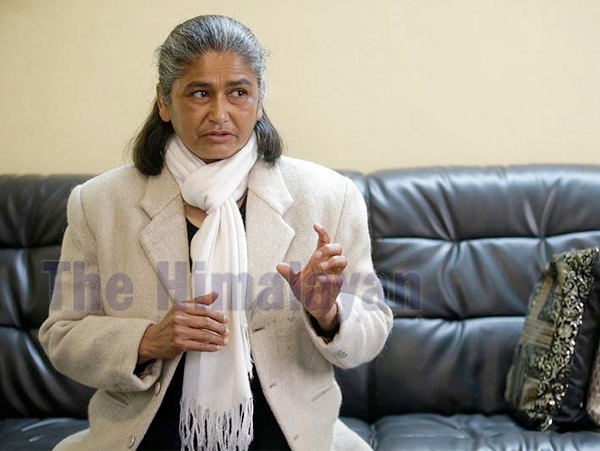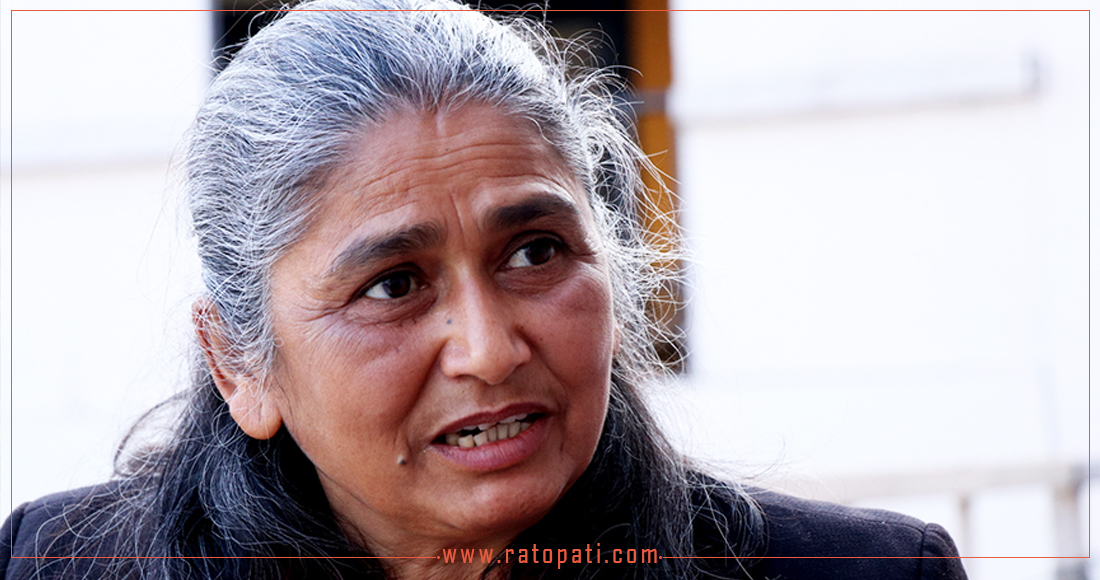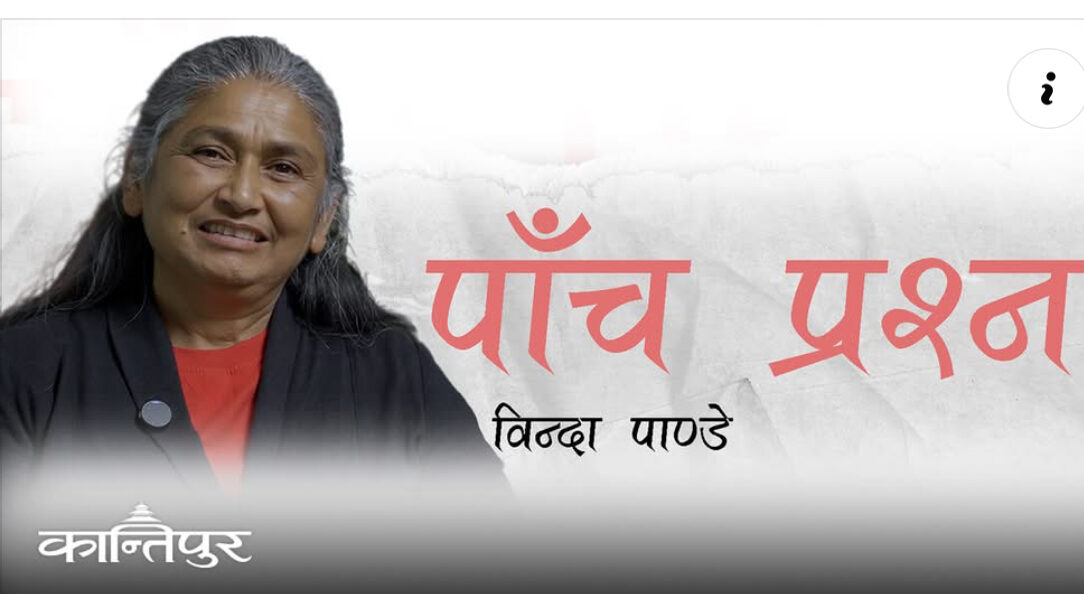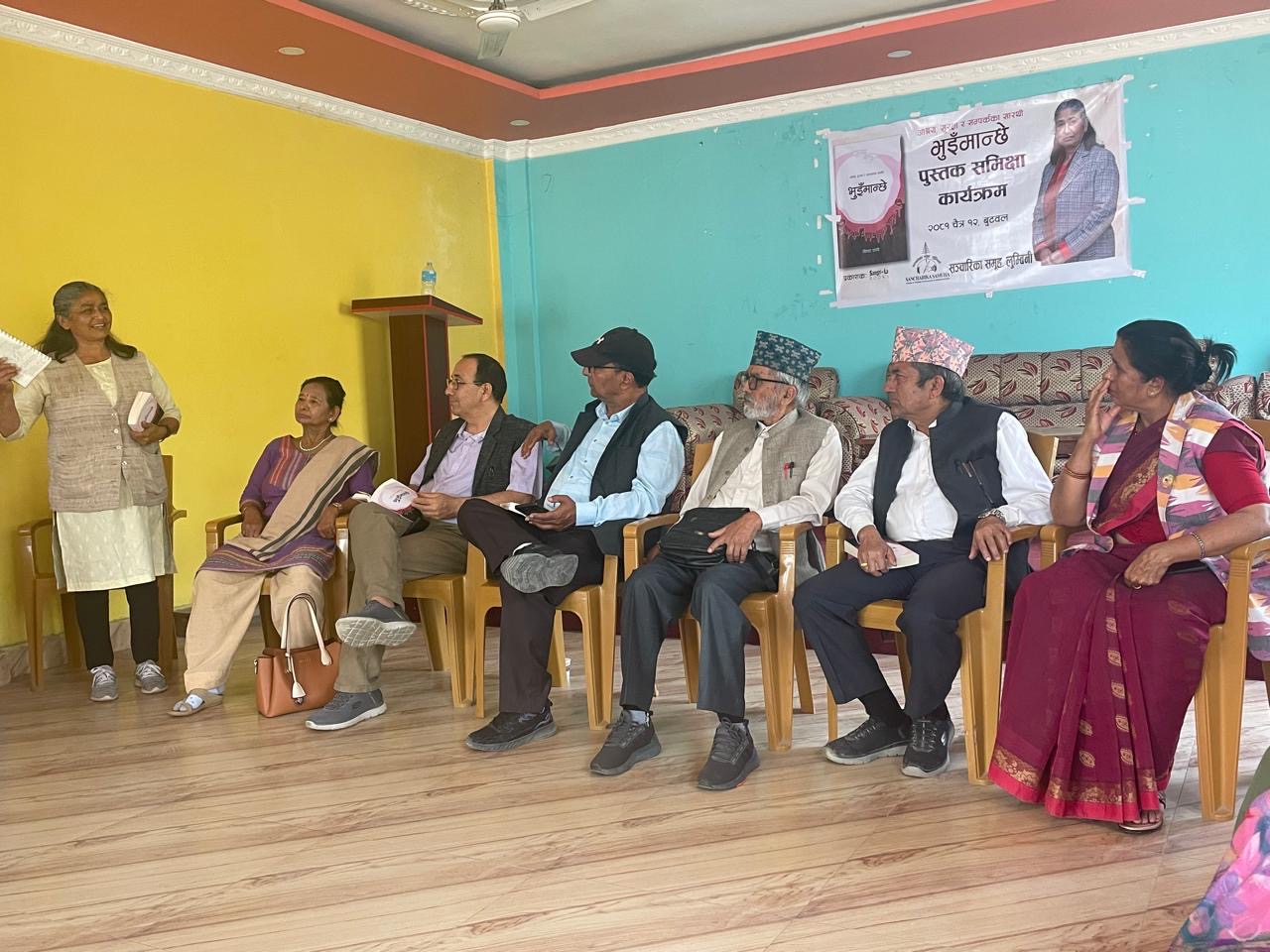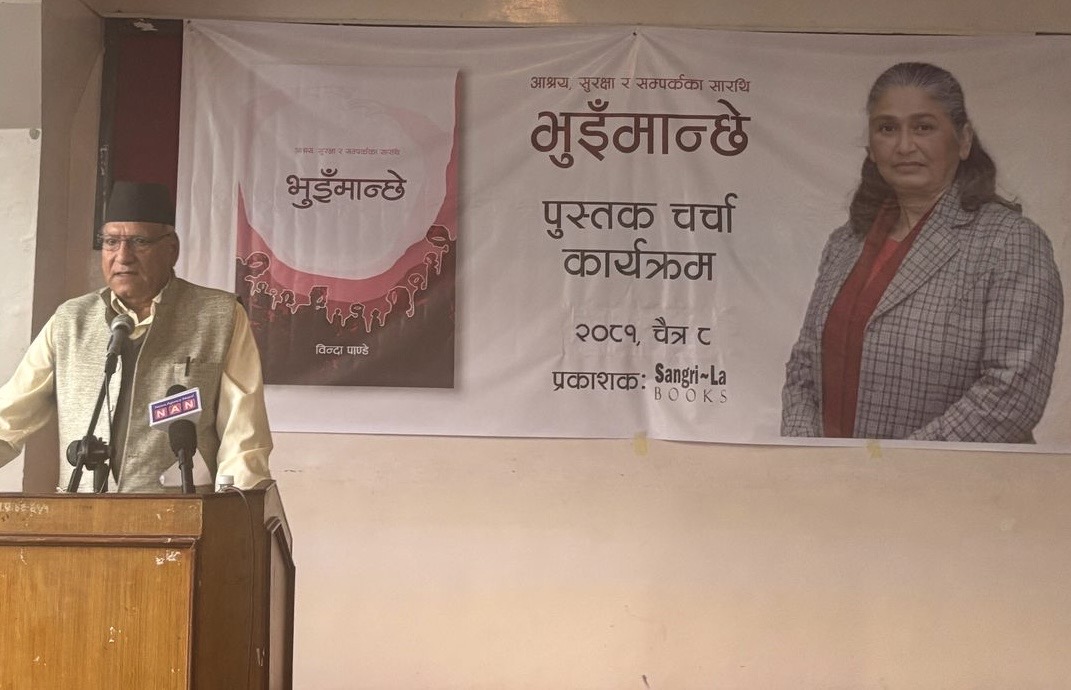ACTRAV-TUDCN Seminar on SDGs 2030 follow up and Implementation: Role for Trade Unions, December 12-13, 2015, In Paris, France
The two days seminar on SDGs 2030 follow up and Implementation: Role for Trade Unions has been conducted on December 12-13, 2015 here in Paris. The seminar was jointly organized by ILO_ACTRAV and ITUC_TUDCN.
December 12, 2015
First day of the seminar was devoted to talk more about “Contextualizing process and outcomes of the SDG 2030: goal, target, indicators and means of implementation”.
Presenters explained that UN has adopted the 17 points goals, having 169 targets and about 230 indicators to monitor it.
************************************************************************
List of Sustainable Development Goals – 2030
Goal 1. End poverty in all its forms everywhere
Goal 2. End hunger, achieve food security and improved nutrition and promote sustainable agriculture
Goal 3. Ensure healthy lives and promote well-being for all at all ages
Goal 4. Ensure inclusive and equitable quality education and promote lifelong learning opportunities for all
Goal 5. Achieve gender equality and empower all women and girls
Goal 6. Ensure availability and sustainable management of water and sanitation for all
Goal 7 Ensure access to affordable, reliable, sustainable and modern energy for all Goal 8. Promote sustained, inclusive and sustainable economic growth, full and productive employment and decent work for all
Goal 9. Build resilient infrastructure, promote inclusive and sustainable industrialization and foster innovation
Goal 10. Reduce inequality within and among countries
Goal 11. Make cities and human settlements inclusive, safe, resilient and sustainable
Goal 12. Ensure sustainable consumption and production patterns
Goal 13. Take urgent action to combat climate change and its impacts*
Goal 14. Conserve and sustainably use the oceans, seas and marine resources for sustainable development
Goal 15. Protect, restore and promote sustainable use of terrestrial ecosystems, sustainably manage forests, combat desertification, and halt and reverse land degradation and halt biodiversity loss
Goal 16. Promote peaceful and inclusive societies for sustainable development, provide access to justice for all and build effective, accountable and inclusive institutions at all levels
Goal 17. Strengthen the means of implementation and revitalize the Global Partnership for Sustainable Development
*************************************************************************************
He further explained that there is not only goals, but having three pillars as economic, social and environment issues to be achieved within 15 years of time
All 17-goals are important for working people. But, if we will work on all, will loose the focus. That is why, ITUC general council meeting has identified 11 priority Goals as Goal-1 as End Poverty, Goal-2 as End Hunger and achieve Food Security, Goal-3 as Ensure Healthy lives, Goal-4 as Ensure Quality Education, Goal-5 as achieving Gender Equality, Goal-7 as Energy for All, Goal-8 as Promote Sustainable, Inclusive and Sustainable Economic Growth, Full and Productive Employment and Decent Work for All, Goal-9 as Resilient Infrastructure and Sustainable, industrialization, Goal-10 as Reduce Inequality, Goal-13 as Climate Change and Goal-16 as Access to Justice for all.
=======================================================
Among the 17 SDGs and associated 169 targets, the most important for unions are-
Goal 1. End poverty in all its forms everywhere.
1.1 By 2030, eradicate extreme poverty for all people everywhere, currently measured as people living on less than $1.25 a day.
1.2 By 2030, reduce at least by half the proportion of men, women and children of all ages living in poverty in all its dimensions according to national definitions.
1.3 Implement nationally appropriate social protection systems and measures for all, including floors, and by 2030 achieve substantial coverage of the poor and the vulnerable.
1.4 By 2030, ensure that all men and women, in particular the poor and the vulnerable, have equal rights to economic resources, as well as access to basic services, ownership and control over land and other forms of property, inheritance, natural resources, appropriate new technology and financial services, including micro finance.
1.5 By 2030, build the resilience of the poor and those in vulnerable situations and reduce their exposure and vulnerability to climate-related extreme events and other economic, social and environmental shocks and disasters.
1.a Ensure significant mobilisation of resources from a variety of sources, including through enhanced development cooperation, in order to provide adequate and predictable means for developing countries, in particular least-developed countries, to implement programmes and policies to end poverty in all its dimensions.
Goal 2. End hunger, achieve food security and improved nutrition and promote sustainable agriculture, in particular:
2.3 By 2030, double the agricultural productivity and incomes of small-scale food producers, in particular women, indigenous peoples, family farmers, pastoralists and fishers, including through secure and equal access to land, other productive resources and inputs, knowledge, financial services, markets and opportunities for value addition and non-farm employment.
Goal 3. Ensure healthy lives and promote well-being for all at all ages
3.3 By 2030, end the epidemics of AIDS, tuberculosis, malaria and neglected tropical diseases and combat hepatitis, water-borne diseases and other communicable diseases
3.7 By 2030, ensure universal access to sexual and reproductive health-care services, including for family planning, information and education, and the integration of reproductive health into national strategies and programmes
3.8 Achieve universal health coverage, including financial risk protection, access to quality essential health-care services and access to safe, effective, quality and affordable essential medicines and vaccines for all
3.9 By 2030, substantially reduce the number of deaths and illnesses from hazardous chemicals and air, water and soil pollution and contamination3.c Substantially increase health financing and the recruitment, development, training and retention of the health workforce in developing countries, especially in least developed countries and small island developing States
3.d Strengthen the capacity of all countries, in particular developing countries, for early warning, risk reduction and management of national and global health risks
Goal 4. Ensure inclusive and equitable quality education and promote lifelong learning opportunities for all, in particular:
4.3 By 2030, ensure equal access for all women and men to affordable and quality technical, vocational and tertiary education, including university.
4.4 By 2030, substantially increase the number of youth and adults who have relevant skills, including technical and vocational skills, for employment, decent jobs and entrepreneurship.
Goal 5. Achieve gender equality and empower all women and girls, particularly:
5.4 Recognise and value unpaid care and domestic work through the provision of public services, infrastructure and social protection policies and the promotion of shared responsibility within the household and the family as nationally appropriate.
5.5 Ensure women’s full and effective participation and equal opportunities for leadership at all levels of decision-making in political, economic and public life.
Goal 7. Ensure access to affordable, reliable, sustainable and modern energy for all, in particular:
7.a By 2030, enhance international cooperation to facilitate access to clean energy research and technology, including renewable energy, energy efficiency and advanced and cleaner fossil-fuel technology, and promote investment in energy infrastructure and clean energy technology.
7.b By 2030, expand infrastructure and upgrade technology for supplying modern and sustainable energy services for all in developing countries, in particular least-developed countries, small-island developing States, and landlocked developing countries, in accordance with their respective programmes of support.
Goal 8. Promote sustained, inclusive and sustainable economic growth, full and productive employment and decent work for all.
8.1 Sustain per capita economic growth in accordance with national circumstances and, in particular, at least seven per cent gross domestic product growth per annum in the least developed countries.
8.3 Promote development-oriented policies that support productive activities, decent job creation, entrepreneurship, creativity and innovation, and encourage the formalisation and growth of micro-, small- and medium-sized enterprises, including through access to financial services.
8.5 By 2030, achieve full and productive employment and decent work for all women and men, including for young people and persons with disabilities, and equal pay for work of equal value.
8.6 By 2020, substantially reduce the proportion of youth not in employment, education or training.
8.7 Take immediate and effective measures to eradicate forced labour, end modern slavery and human trafficking and secure the prohibition and elimination of the worst forms of child labour, including recruitment and use of child soldiers, and by 2025 end child labour in all its forms.
8.8 Protect labour rights and promote safe and secure working environments for all workers, including migrant workers, in particular women migrants, and those in precarious employment.
8.b By 2020, develop and operationalise a global strategy for youth employment and implement the Global Jobs Pact of the International Labour Organization
Goal 9. Build resilient infrastructure, promote inclusive and sustainable industrialisation and foster innovation, in particular:
9.2 Promote inclusive and sustainable industrialisation and, by 2030, significantly raise industry’s share of employment and gross domestic product, in line with national circumstances, and double its share in least developed countries.
Goal 10. Reduce inequality within and among countries:
10.1 By 2030, progressively achieve and sustain income growth of the bottom 40 per cent of the population at a rate higher than the national average.
10.2 By 2030, empower and promote the social, economic and political inclusion of all, irrespective of age, sex, disability, race, ethnicity, origin, religion or economic or other status.10.4 Adopt policies, especially fiscal, wage and social protection policies, and progressively achieve greater equality.
10.6 Ensure enhanced representation and voice for developing countries in decision-making in global international economic and financial institutions in order to deliver more effective, credible, accountable and legitimate institutions.
10.7 Facilitate orderly, safe, regular and responsible migration and mobility of people, including through the implementation of planned and well-managed migration policies.
Goal 13. Take urgent action to combat climate change and its impacts, in particular:
13.2 Integrate climate change measures into national policies, strategies and planning.
13.b Promote mechanisms for raising capacity for effective climate change-related planning and management in least-developed countries and small-island developing States, including focusing on women, youth and local and marginalised communities.
Goal 16. Promote peaceful and inclusive societies for sustainable development, provide access to justice for all and build effective, accountable and inclusive institutions at all levels, in particular:
16.2 End abuse, exploitation, trafficking and all forms of violence against and torture of children.
16.3 Promote the rule of law at the national and international levels and ensure equal access to justice for all.
16.6 Develop effective, accountable and transparent institutions at all levels.
16.7 Ensure responsive, inclusive, participatory and representative decision-making at all levels. 16.8 Broaden and strengthen the participation of developing countries in the institutions of global governance.
16.b Promote and enforce non-discriminatory laws and policies for sustainable development.
==========================================================
Among these 11 selected goals as well goal-8 is the heart of trade union movement, which is relating with decent work agenda. And Among the 169 targets, 25 have been prioritized and among them as well 16-targets linked with decent work will be closed monitored by ITUC and ILO annually
Among the targets, 8.b.1, 8.8.1, 8.8.2 and 10.1 are needed to deal and come up with result by now and March 2016. Because, ITUC is still dealing hardly to include the issues of right to organize and collective bargaining as ratification of C-87 & 98 and include occupational diseases as target under goal-8. Because C-87 and 98 cover only 48 per cent of the world working population and almost 90 per cent decent work agenda comes under goal-16.
December 13, 2015
2nd day of the program was focused on the Trade Union engagement strategy on 2030: Outreach and awareness raising in trade union organisation. The possible tools, target for training etc. were discuss. ITUC is in the process to develop toolkits by first quarter of 2016. And, Turin center can offer training on SDGs as face to face and distance learning. Developing digital material as video clipping with audio was suggested. ILO-GB is taking SDGs goals as regular agenda. It would be the part of centenary initiatives as well as one of the issues to discuss in its regional conferences. It can be the issues of DWCP program in developing countries and Gender equality.
There are different stakeholders to be part of the SDGs process. TU can be pro-active to work with all of them and intervene the process effectively. ILO-ACTRAV’s resources can be maximize in this regards in different level as national, regional and global levels’ project and activities.
2nd Joint OECD-DAC and Trade Union Forum on “Donors and Labor movement strategies to implement the UN 2030 Agenda”
One day joint seminar of OECD-DAC and TUAC-TUDCN was conducted on December 14, 2015 in OECD office on SDGs 2030, focusing goal number 8 as workers priority. It was divided into three high level panels. First panel was focused on “The developmental releva nce of social dialogue at country level, which was chaired by Willington Chibebe from ITUC and panelist were workers from Tunisia, government of Sweden and Uruguay and employer from Ghana.
nce of social dialogue at country level, which was chaired by Willington Chibebe from ITUC and panelist were workers from Tunisia, government of Sweden and Uruguay and employer from Ghana.
Second panel was on National strategies for youth employment and the role of social partners, moderated by John Egan from OECD-DAC. The panelists were worker from Ghana, ILO specialist from and representative from OECD.
And, the last panel was on Donor’s policies to contribute in decent work creation through private sector development cooperation program. This session was moderated by OECD-DAC and panelists were from Sweden, Belgium and worker from Malawi.
These sessions were more on Africa focused as text of presentation as well as panelist as persons. The program was concluded in the evening about 18.15 PM as the final session of the trip.

